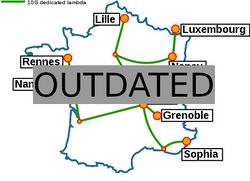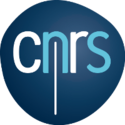Grid5000:Home
|
Grid'5000 is a large-scale and versatile testbed for experiment-driven research in all areas of computer science, with a focus on parallel and distributed computing including Cloud, HPC and Big Data. Key features:
Older documents:
|
Random pick of publications
Five random publications that benefited from Grid'5000 (at least 2937 overall):
- Daniel Balouek. Performance-cost trade-offs in service orchestration for edge computing. SSDBM 2024 - 36th International Conference on Scientific and Statistical Database Management, Edge Computing; Resource Management; Computing Continuum; Trade-offs; Urgent Computing, Jul 2024, Rennes, France. pp.1-4, 10.1145/3676288.3676307. hal-04775133 view on HAL pdf
- Maxime Gobert. Contributions to the Analysis and Design of Parallel Batched Bayesian Optimization Algorithms. Operations Research math.OC. Université de Mons (Belgique), 2024. English. NNT : . tel-04801888 view on HAL pdf
- Jolyne Gatt, Maël Madon, Georges da Costa. Digital sufficiency behaviors to deal with intermittent energy sources in a data center. ICT4S 2024: International Conference on ICT for Sustainability, Jun 2024, Stockhlom, Sweden. 10.1109/ICT4S64576.2024.00015. hal-04745218 view on HAL pdf
- Quentin Guilloteau, Florina M Ciorba, Millian Poquet, Dorian Goepp, Olivier Richard. Longevity of Artifacts in Leading Parallel and Distributed Systems Conferences: a Review of the State of the Practice in 2023. REP 2024 - ACM Conference on Reproducibility and Replicability, ACM, Jun 2024, Rennes, France. pp.1-14, 10.1145/3641525.3663631. hal-04562691 view on HAL pdf
- Romaric Pegdwende Nikiema, Marcello Traiola, Angeliki Kritikakou. Impact of Compiler Optimizations on the Reliability of a RISC-V-based Core. DFT 2024 - 37th IEEE International Symposium on Defect and Fault Tolerance in VLSI and Nanotechnology Systems, Oct 2024, Oxfordshire, United Kingdom. pp.1-1. hal-04731794 view on HAL pdf
Latest news
Failed to load RSS feed from https://www.grid5000.fr/mediawiki/index.php?title=News&action=feed&feed=atom: Error parsing XML for RSS
Grid'5000 sites
Current funding
As from June 2008, Inria is the main contributor to Grid'5000 funding.
INRIA |
CNRS |
UniversitiesUniversité Grenoble Alpes, Grenoble INP |
Regional councilsAquitaine |


